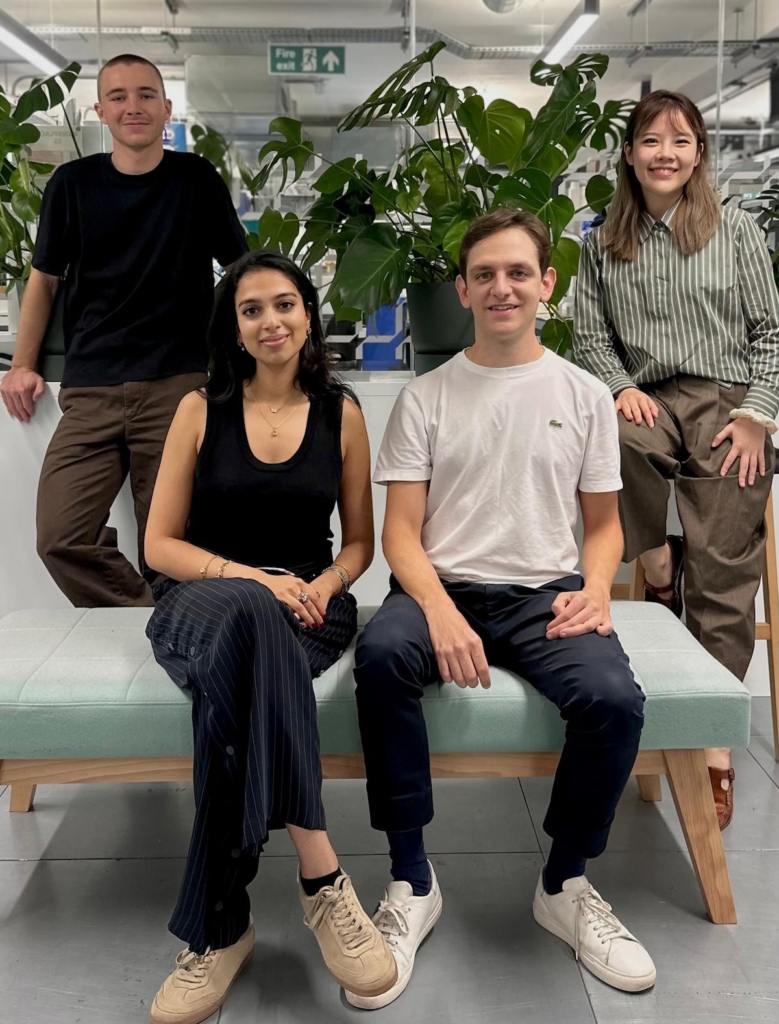
London-based biotech startup Genie Fertility has emerged from stealth with $1.22 million in pre-seed funding to develop a non-invasive fertility diagnostic for uterine health using menstrual blood analysis. The company aims to address what the founders call a critical blind spot in fertility treatment.
Founded by CEO Anoushka Menon, a UCL and Cambridge University geneticist, and early employee at at-home diagnostics company Thriva, where she launched their women’s health products, and CTO Dr. Andreas Hadjimitsis, whose PhD at Imperial College focused on both computational and wet-lab analysis for diagnostic applications, Genie Fertility met through accelerator program Entrepreneurs First in May 2024.
Addressing the Uterine Health Gap
According to the company, the uterus accounts for up to 25% of fertility issues, yet remains underexplored in fertility treatment compared to sperm, egg, and embryo health. Current assessment requires invasive endometrial biopsies that are expensive, painful, and can leave scar tissue.
“The health of the uterus lining has long been a blindspot for clinicians because it can only be accessed through invasive biopsy,” explains Menon. “Our non-invasive diagnostic addresses this fundamental gap.”
The founders’ personal experiences with PCOS influenced their focus on improving reproductive health diagnostics. Menon spent years managing a PCOS diagnosis, only to discover a decade later the diagnosis was incorrect. Hadjimitsis also has personal family experience with PCOS and its impact on fertility.
“The reason we’re experiencing delayed diagnosis, misdiagnosis, or lack of diagnosis is insufficient data,” Menon notes. “Current diagnostic approaches use overly simplistic data models.”
Menstrual Blood as Diagnostic Tool
Genie Fertility’s approach analyzes molecular markers in menstrual blood, which represents the monthly shedding of the uterine lining. The company has identified novel fertility markers that can be addressed through existing medical interventions.
“A significant portion of fertility research has focused on sperm, egg, and embryo health,” says Hadjimitsis. “We want to create a world where the uterus receives equivalent attention and diagnostic rigor.”
The diagnostic is powered by an ML multi-omics discovery platform built on data from over 200,000 fertility patients. The multi-omics approach examines how different markers, proteins, and hormones interact with each other.
“The techniques we’re building have been used in other scientific fields for years,” Menon explains. “Their application to uterine health represents a significant opportunity to close existing knowledge gaps.”

Clinical Integration and Use Cases
Genie is working with IVF clinics in the UK and Europe to integrate the diagnostic into standard fertility workups. The test would be offered on day one of a patient’s fertility journey, alongside traditional blood work, sperm analysis, and fallopian tube tests.
The diagnostic can identify changes in uterine health over time, with repeat testing recommended after medical interventions. The company also found that baseline hormones typically measured through blood draws can be detected in menstrual blood, potentially consolidating multiple tests into a single sample.
“IVF is the gold-standard treatment for infertility, which affects 1 in 6 couples, but it fails 73% of the time and requires urgent innovation,” Hadjimitsis notes.
Development Timeline and Team
The founders kicked off lab work in July 2024 and conducted a small pilot study before raising their pre-seed round in early 2025. Clinical studies began in March 2025, with 60 patients already donating menstrual blood samples.
The four-person London-based team includes a founding scientist whose PhD focused on the endometrium and endometriosis, plus an ML engineer. Medical advisors from Imperial College London, Universtiy of Melbourne, and Harvard Medical School support the company’s scientific development.
Funding and Future Plans
The $1.22 million round includes participation from Tiny VC, 33East VC, Arben Ventures, Transpose Platform, and Entrepreneur First.
The funding will support a nine-month clinical trial to collect longitudinal data on pregnancy outcomes based on the markers identified in Genie’s model. Beyond fertility, the platform aims to develop diagnostics and therapeutics for PCOS, endometriosis, and perimenopause.
“Fertility is just the start,” Menon explains. “This can be a perimenopause product. This could be a PCOS product, an endometriosis product.”
Genie Fertility’s vision extends to creating a comprehensive uterine dataset that could serve as a foundation for broader reproductive health research, addressing conditions that have been historically neglected in medical research as well as clinical care, and eventually, a platform for accelerated reproductive biomarker discovery and drug development.



